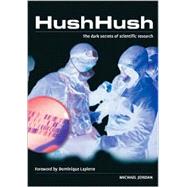
| Foreword | p. 8 |
| Introduction | p. 11 |
| The Secret of Success: Big business keeping the public in the dark | p. 15 |
| The Bhopal Chemical Disaster | p. 18 |
| Asbestos | p. 24 |
| Tobacco, Health and Lies | p. 28 |
| Chlorpyrifos: A Killer With a Secret | p. 32 |
| Cell Phones: How Safe Are We? | p. 35 |
| Deep Vein Thrombosis in Economy Class | p. 38 |
| Vehicle Safety Secrets | p. 42 |
| Doctor Knows Best: Medical ethics under the knife | p. 45 |
| The Thalidomide Tragedy | p. 48 |
| Dow Corning Breast Implants | p. 51 |
| Superbugs and Antibiotics | p. 54 |
| Ritalin and Hyperactivity | p. 57 |
| Gulf War Syndrome | p. 59 |
| Fluoride: Are We Being Conned? | p. 62 |
| A Question of National Security: "Top secret" coverups | p. 65 |
| The Mull of Kintyre Disaster | p. 68 |
| The Manhattan Project | p. 72 |
| Smallpox: How Ready Are We? | p. 76 |
| Agent Orange | p. 79 |
| Radiation Exposure | p. 83 |
| UFOs--A Government Fabrication? | p. 87 |
| Power Corrupts: Political gain takes precedence over public interests | p. 89 |
| Nuclear Power Plant Disasters | p. 92 |
| Is There a Nuclear Power Plant Coverup? | p. 98 |
| PCB Poisoning of North America | p. 102 |
| The Love Canal | p. 106 |
| The GM Food Debate | p. 110 |
| A Green and Red Herring: The separate truths of governments and greens | p. 115 |
| Global Warming | p. 118 |
| The Silencing of Bjorn Lomborg | p. 121 |
| Sweden's Biggest Environmental Disaster | p. 124 |
| Deforestation | p. 128 |
| The Minke Whale Deception | p. 132 |
| Atomflot: A Catastrophe-in-Waiting | p. 136 |
| Space Debris | p. 140 |
| Saving Face: When professional pride comes before public safety | p. 143 |
| Ferry Disasters | p. 146 |
| X-Ray Secrecy | p. 151 |
| Concorde | p. 154 |
| The Human Cost: Violating human rights in the name of science | p. 159 |
| Porton Down | p. 160 |
| Unit 731 | p. 163 |
| Shell in the Niger Delta | p. 167 |
| The Tuskegee Syphilis Study | p. 172 |
| Human Testing at Holmesburg Prison | p. 176 |
| The Alder Hey Children's Hospital Scandal | p. 180 |
| What Does the Future Hold? | p. 184 |
| Glossary | p. 188 |
| Index | p. 190 |
| Bibliography | p. 192 |
| Table of Contents provided by Ingram. All Rights Reserved. |
The New copy of this book will include any supplemental materials advertised. Please check the title of the book to determine if it should include any access cards, study guides, lab manuals, CDs, etc.
The Used, Rental and eBook copies of this book are not guaranteed to include any supplemental materials. Typically, only the book itself is included. This is true even if the title states it includes any access cards, study guides, lab manuals, CDs, etc.